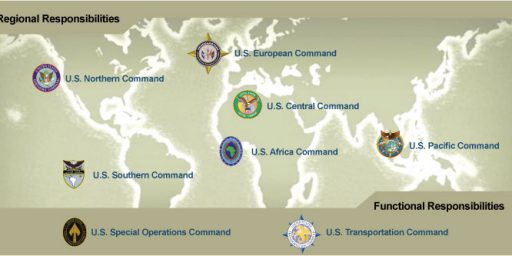MILITARY COMMISSIONS
ARMY Article: Washington Report
Secretary of Defense Donald H. Rumsfeld designated four individuals to serve as review panel members for military commissions. They are: Griffin B. Bell, former U.S. Attorney General and former U.S. Circuit Judge, U.S. Court of Appeals for the Fifth Circuit; Edward G. Biester, Judge, Court of Common Pleas of Bucks County, Pa., Seventh Judicial District and former Pennsylvania Attorney General and former member of the U.S. House of Representatives; William T. Coleman Jr., former Secretary of Transportation; and Frank Williams, Chief Justice of the Rhode Island Supreme Court. The four will be commissioned as Army major generals for an approximate two-year term while serving intermittently in this role.
Review panel members are responsible for reviewing military commission proceedings. The review panel may consider written and oral arguments by the defense, the prosecution and the government of the nation of which the accused is a citizen. If the review panel finds that a material error of law occurred, the review panel will return the case for further proceedings, including dismissal of charges. The review panel may also make recommendations to the Secretary of Defense with respect to the disposition of the case before it, including sentencing matters. Except as necessary to safeguard protected information, written opinions of the review panel will be published.
Secretary Rumsfeld also named retired Army Maj. Gen. John D. Altenburg Jr. as the appointing authority for military commissions. He will be responsible for approving charges for individuals charged under the commissions, appointing military commission members and approving plea agreements. Altenburg replaces Deputy Defense Secretary Paul Wolfowitz in the position. Altenburg retired from the Army as a major general in 2002. His last military assignment was Assistant Judge Advocate General for the Department of the Army. [emphisis added]
Interesting. I see some utility in putting these folks into the command structure to increase their visible authority, but one would think the whole idea of bringing outsiders in would be to temper the military. Putting them under the chain of command would seem to dilute that. Plus, one would think 2-star rank wold be a downgrade for a former cabinet secretary.





Interesting approach. I agree the O-8 designation is a big drop from the Cabinet. But that would make them equal in rank to the service Judge Advocates General, if I recall correctly. I guess the alternative would have been to make them Senior Executive Service…but the place of the SES in the rank structure is ambiguous, while that of a Major General is pretty well-defined.
I think I’d have just gone with “Special Assistant to the President” or some such. That would get the brass’ attention.
If I recall, back in the late ’40s or so (forgive me, it’s been awhile since my last US history class), there were threats of nationwide railroad strikes. When this threatened the basic existence of certain parts of the country (no interstate highway system yet, so no realistic way other than trains to get food in & out, etc.), the gummint came in and took over some functions.
I remember reading accounts where some station manager was not ‘working up to his full potential’ and the Powers That Be came in and said ‘OK, we can’t fire you since we don’t have anyone with your experience to replace you. So you’ve just been drafted & commissioned a Light Colonel, in charge of this station. Make it run properly or get court-martialed and sent to Leavenworth for 20. Have a nice day.’ It made the managers into people who could be given orders & had the authority to make things happen.
Anyone else remember this better than me & can fill in more details?
—